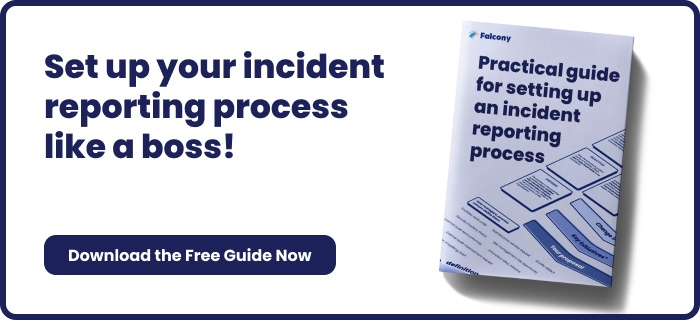How incident categorisation helps organisations stay adaptable?
In today's dynamic and ever-changing business landscape, adaptability is a key factor in an organization's success. Unexpected incidents and challenges can arise at any time, and how well an organization responds to these incidents can determine its ability to thrive.
Incident categorization plays a crucial role in helping organizations stay adaptable by providing clarity, organization, and strategic insights when dealing with unexpected events. In this blog post, we'll explore how incident categorization contributes to organizational adaptability.
The Importance of Incident Categorization
Incident categorization is the process of classifying and organizing incidents based on various criteria such as type, severity, impact, and cause. This categorization allows organizations to:
-
Quickly Identify Patterns: By categorizing incidents, organizations can identify patterns and trends in the types of issues they face. This enables them to proactively address recurring problems and prevent future incidents.
-
Prioritize Responses: Categorization helps organizations prioritize incident responses based on severity and impact. Critical incidents that can severely disrupt operations receive immediate attention, while less critical ones are managed according to their priority.
-
Allocate Resources Effectively: With incident categorization, organizations can allocate resources more efficiently. They can assign specialized teams or individuals to handle specific types of incidents, ensuring that the right expertise is applied where needed.
-
Enhance Decision-Making: Categorized incident data provides valuable insights that can inform strategic decisions. Organizations can use this data to make informed choices about resource allocation, risk mitigation, and process improvement.
-
Improve Communication: Incident categorization facilitates clear and effective communication within the organization. Teams and stakeholders can quickly understand the nature and scope of an incident, making it easier to coordinate responses.
How Incident Categorization Supports Organizational Adaptability
-
Real-Time Response: Categorization allows organizations to respond rapidly to incidents. When an incident occurs, the organization can quickly assess its category, severity, and potential impact, enabling swift and appropriate action.
-
Continuous Improvement: By categorizing incidents and analyzing data over time, organizations can continuously improve their processes and operations. They can identify areas where they need to adapt and make proactive changes to prevent similar incidents in the future.
-
Risk Mitigation: Incident categorization helps organizations identify high-risk incident categories. This knowledge allows them to develop risk mitigation strategies and adapt their business continuity plans to address potential vulnerabilities.
-
Resource Flexibility: An adaptable organization can shift resources as needed. Incident categorization facilitates this by providing insights into which areas of the business require more attention during times of crisis or rapid change.
-
Enhanced Customer Experience: By categorizing incidents that affect customers, organizations can ensure that customer service teams are well-prepared to respond to common issues. This leads to improved customer satisfaction and loyalty.
Conclusion
In an unpredictable business environment, incident categorization is a powerful tool that helps organizations stay adaptable. By classifying and organizing incidents, organizations can respond more effectively, allocate resources efficiently, and make informed decisions. This proactive approach not only mitigates risks but also enhances an organization's ability to thrive in an ever-changing world. Therefore, investing in incident categorization is a wise choice for any organization seeking to remain agile and resilient in the face of challenges.
Are you looking for a tool to report incidents or any other issues in your organisation? Falcony | Observe ticks all the boxes for incident management, is easy to customise, enables real dialogue and is a lot more.
We are building the world's first operational involvement platform. Our mission is to make the process of finding, sharing, fixing and learning from issues and observations as easy as thinking about them and as rewarding as being remembered for them.
By doing this, we are making work more meaningful for all parties involved.
More information at falcony.io.

Related posts
How to combine idea generation with incident reporting?
Idea generation and incident reporting are two essential processes that organizations rely on to...
7 Reasons Why Incident Dashboards are Essential
In today's data-driven world, the importance of incident management cannot be overstated.
...
Expanding the Use of Operational Reporting Tools
In the ever-evolving landscape of business operations, organizations are constantly seeking ways to...





